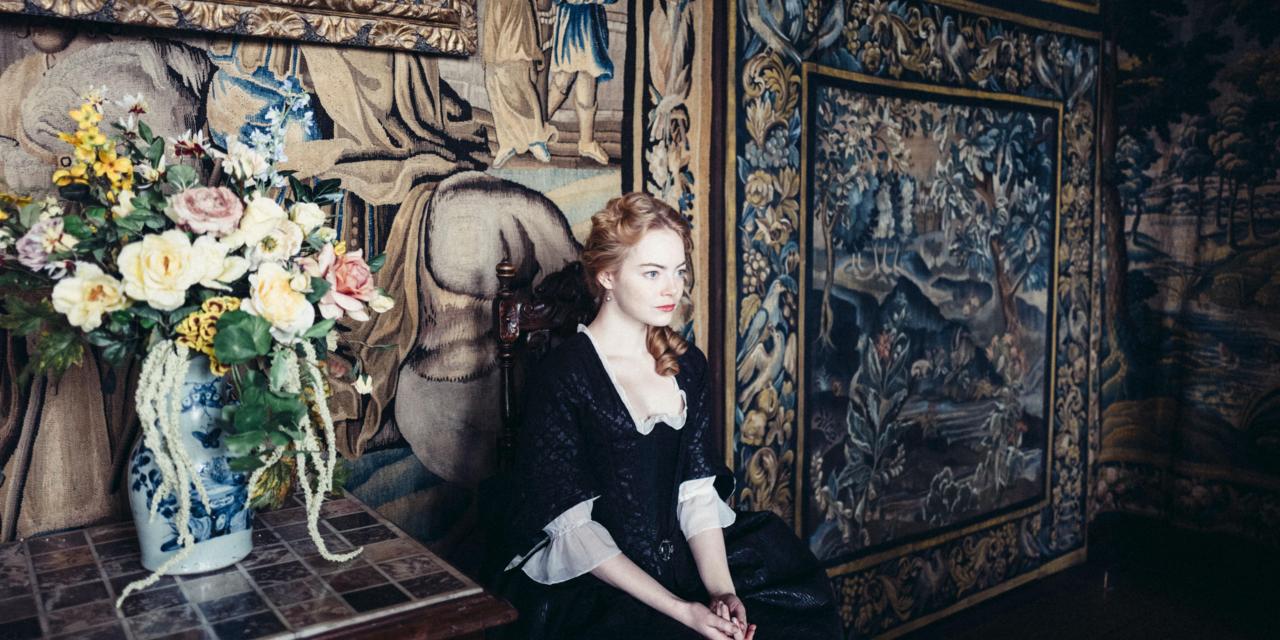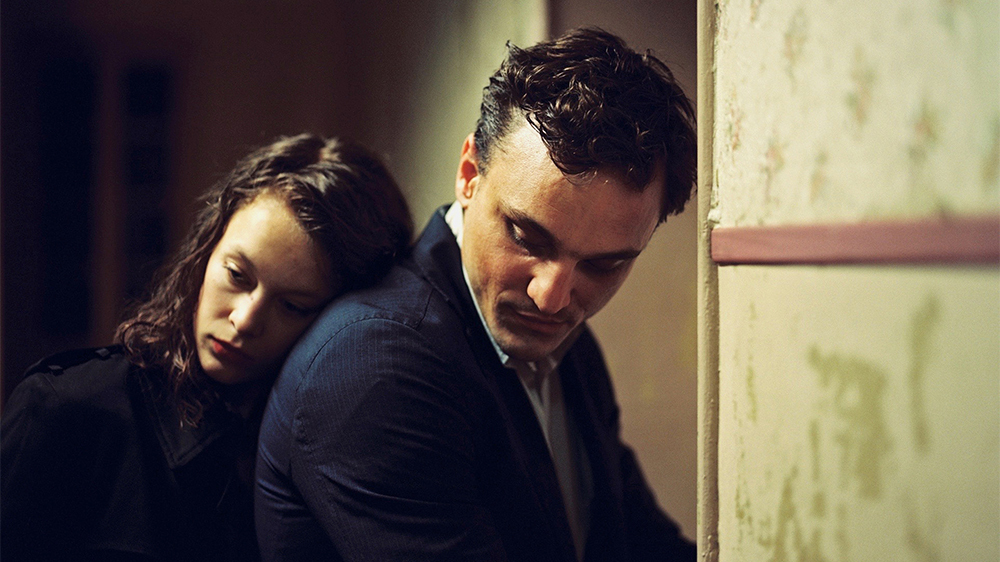Hey guys! Hopefully you had the chance to see some VIFF movies during the festival this year. We have a few special guests who wrote some reviews on the films that they got the chance to see. Enjoy!
Parallel (2018) – Isaac Ezban

Isaac Ezban’s Parallel is a strong character-driven sci-fi cautionary tale that explores the dangers of unmoderated ambition. The story follows four young friends – Noel (Martin Wallström), Devin (Aml Ameen), Leena (Georgia King) and Josh (Mark O’Brien) – who are struggling to sell the app they’ve developed. When the group stumbles upon a magic mirror that lets them enter alternate universes, they use their newfound capabilities to aid their technological developments and find financial success. As their drives increase and the mirror is exploited, integrity is lost and tensions brew among the group. Parallel delves into the consequences of destructive ambition and tampering with the natural order of things, while also being incredibly gripping from start to finish.
The film works well because each member of the group has their own motivations, as well as specific interpersonal relationships with each other. Parallel turns its attention towards what the characters gain from having access to other worlds, and the costs of universe-crossing. The story never gets lost in the fantastical because the main source of drama and tension is always grounded in the characters. Ezban keeps the film engaging by effectively balancing the interpersonal dramatic elements with more sci-fi and thriller. We are shown the great opportunities and fun aspects of crossing universes, as well as, the serious and emotional consequences. Ezban and screenwriter Scott Blaszak wonderfully uses the big idea of interdimensional travel to tell a very personal story of four friends and what they want out of life. The attention payed to characters and their relationships elevate this clever and entertaining film.
– Author: Siobhan Fernandes, English major, Film Studies minor. Graduated.
The Old Man & the Gun (2018) – David Lowery

David Lowery’s The Old Man and the Gun, is based on the real-life account of Forrest Tucker(Robert Redford), a man who at the age of 70 had a record for robbing at least a hundred banks, and escaped from at least 16 prison facilities during his lifetime. It is a very emotional and glorious sendoff to Robert Redford, who I consider to be as one of the greatest acting figures in Hollywood. Furthermore, the connection between Jewel (Sissy Spacek), and Forest is tender and sweet. Despite their difference in backgrounds, their connection is brought by their own desires to live life at its fullest.
The Old Man and the Gun is a wonderful interpretation of the “dramatic life” of Forrest Tucker. Overall, the dialogue is well-written, and paced brilliantly by the actors. Thematically it is warming to the ideas of life and love. Thus, it brings a sense of humanity, to a story about a Houdini-like convict. It is true masterpiece, and well-received by the public.
– Author: Thibault Saniard, Interdisciplinary major. Fourth year.
Long Day’s Journey into Night (2018) – Bi Gan

I still remembered the last time I watched Kaili Blues, Bi Gan’s directorial debut in theater a few years ago. Even though that final 42-minute single shot felt somewhat rushed and cheaply made, I still found it amazing since it takes me to another world where the boundary between past and present is ambiguous and the character’s journey ends up becoming a dream filled with his memories. His direction of telling a story through visual motifs and poetic structure is nothing less of mesmerizing and through it I saw inspirations drawn from Tarkovsky, Apichatpong and Hou Hsiao-hsien’s films.
The reason why I mentioned that experience is because I found it appropriate to describe this film as an extended version of Kaili Blues. This film is an alternative take on film noir genre, where Luo Hongwu, the protagonist goes on a journey to find Wan Qiwen, a mystical woman who appeared in his past and unlock the puzzles of his childhood friend’s death. Even though the critically-acclaimed one-hour single take in 3D is portrayed brilliantly and the cinematography by David Chizallet is astonishing to say the least, I still found the first half of the film broken and confusing, since it’s difficult to figure out whether each part of storyline happened in the past or present, and the characters felt sort of flat and distant.
– Author: Andy Liu, Computer Science major. Fourth year.
One Cut of the Dead /Kamera o tomeru na! (2017) – Shinichiro Ueda

The only thing I heard about this film before going into theatre is how this film became a miracle in Japan’s domestic box office, growing from an opening in 2 theatres to full screenings in 150 theatres in the span of just a few weeks. The first half of the film shows us a 40-minute short film done in a single take, which was about an indie horror film crew that goes into a water filtration station and ends up encountering real zombies in the area. Even though the short film already triggered some laughs in theatre, the rest of the film is what made the crowds cheer and laugh the most. The second half shows us the full backstage story of how the single-take short film is made, and without spoiling anything, I found it way funnier than the first half, and the ending feels somewhat inspirational. Even though the cinematography feels typical and cheap, this is by far the best comedy film I watched this year for its unique form of storytelling, and I would recommend this film to everyone who appreciates film as a form of art.
– Author: Andy Liu, Computer Science major. Fourth year.
The Favourite (2018) – Yorgos Lanthimos

Despite being the first film without his writing credit, The Favourite fits neatly into the filmography of Yorgos Lanthimos, a pioneer of the Greek Weird Wave whose body of work is defined almost entirely by alienation, uncertainty and pitch-black comedy. His next act of misanthropy directs our attention not toward the absurdist dystopia of “The Lobster”, nor the domestic nightmares of “Dogtooth” and “The Killing of a Sacred Deer” but instead history. Embracing the ever-relevant maxim, truth is stranger than fiction.
Here, the audience gawks at Queen Anne (Olivia Colman) and the two vicious Ladies who curried her favour. Set during the early 1700s, the Tories and Wigs bicker over England’s costly war against France, whilst the Queen can’t be asked to care as she is wracked with ailments and mood-swings. Her tumultuous grief can only be soothed by the company of her seventeen bunnies, (one for each of her pregnancies, none of which left behind an heir), and the constant attention of her most trusted servant and confidante, Lady Sarah (Rachel Weisz), the steely-eyed Duchess of Marlborough. The titular “Favourite,” Lady Sarah rules from the sideline, informing the Queen on every course of action, including the war, and satisfying all her needs, (whatever they may be), when the Queen demands it. However, her ambitions are challenged by her own upstart cousin Abigail (Emma Stone), a maid and disgraced former lady attempting to claw her way back into the aristocracy with calculated charm and schmoozing.
The Favourite lacks much of the uncertainty and dread of Lanthimos’ previous work, instead leaning heavily into the comedy and the strength of the performances, making it his most accessible work yet. He invokes a considerable amount of flair in the camera work, location and costuming. Warped wide-angle cameras glide through ornate halls, emphasizing the sprawling nature of the palace.
All this is ultimately in service of one stellar ensemble cast, a despicable bunch who bounce off each other with enough cattiness and wit to hold attention for most of the two-hour run time. Emma Stone gives one of her best performances, in part because she finally found a truly rich and well-written character to sink her teeth into. Her English accent was also exceptional, and (according to my British friend) quite consistent. Weisz’s performance, is more one-note, again due to the nature of her respective character, but her charisma and acting talent are more than enough to match Stone. Meanwhile in the supporting category, Nicholas Hoult, of all people, manages to steal nearly every scene he’s in as the foppish leader of the Tories. Still, nothing can top the dissonant mix of pity and amusement in Olivia Colman’s Anne; the range of expression in her performance masterfully coveys what can only be described as the last sparks of light in a dying brain. Anne is confused and angered by those who constantly coddle and manipulate her. In the end she is simply longing for someone who can treat her with kindness and honesty. It would be heartbreaking if it weren’t couched in such a ridiculous narrative.
Ultimately, “The Favourite” is a gleefully bleak political satire and descent into madness that under normal circumstances, would seem strange to most American, Canadian and English audiences, if only it didn’t feel so timely.
– Author: Zachary Kourgials, International Relations Major. Fourth year.
Burning (2018) – Lee Chang-dong

Korean Auteur Lee Chang-dong has adapted a Murakami short story for his new film, Burning. We follow a young man as he meets an enigmatic woman from his past and descends into a strange game of psychological cat and mouse. The movie winds around like a series of misremembered dreams lightly brushing against a nerve of latent antagonism. It is profoundly affecting and atmospheric, mining those dark moments of realization when your mind is pulled out of fantasy and into reality, or, worse still, the other way around.
– Author: Michael Stringer, Film Studies and Philosophy double major. Third year.
Transit (2018) – Christian Petzold

Berlin School director Christian Petzold’s new film, Transit, masterfully updates stories of WWII migration into modern day Marseille. Part of me is tempted to see this film as an allegory for the refugee crisis, but I think following that exclusive reading is too reductive. This is a film primarily about people who are stuck in transit, like a perpetual state of becoming, while the world merely changes scenery to give an illusion of progress or destination.
– Author: Michael Stringer, Film Studies and Philosophy double major. Third year.
Happy as Lazzaro (2018) – Alice Rohrwacher

Alice Rohrwacher’s new film begins in a kind of atemporal fantasy where people seem to be lovingly play-acting a story of class struggle, with all the props and costumes of history at their disposal. Reality eventually interjects itself only to have the same game played out on a different stage, but without any of its old magic. A modern parable with surprisingly precise political turns and gorgeous imagery. Rohrwacher is a force of nature!
– Author: Michael Stringer, Film Studies and Philosophy double major. Third year.
 Follow
Follow